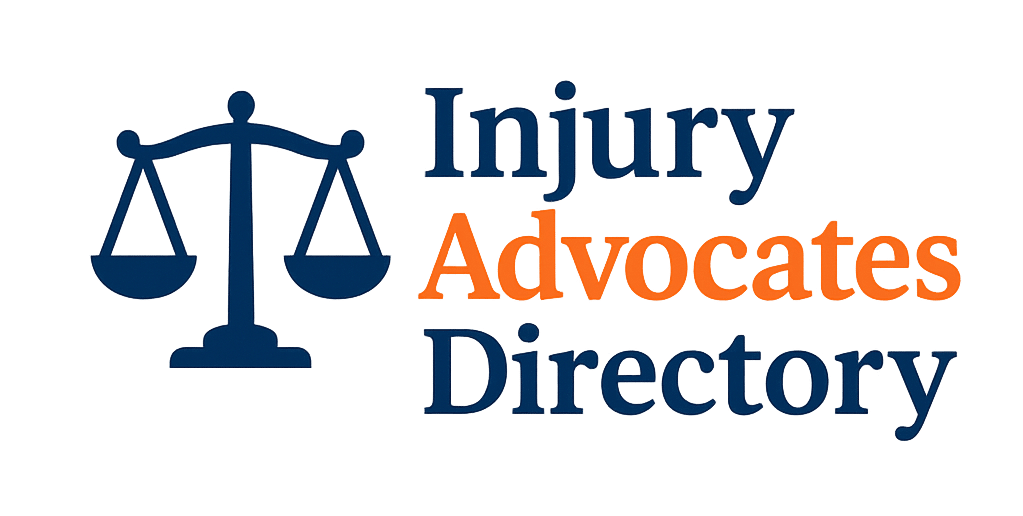When involved in a car accident, understanding your rights and the claims process is essential for securing the compensation you deserve. This guide covers the critical aspects of car accident injury claims, providing valuable insights into the steps you must take and the common pitfalls to avoid.
From the moment of the accident to navigating insurance policies and dealing with the legal system, this article will equip you with the knowledge you need for effective car accident injury claims. Let's delve into the details.
What to do after a car accident?
After a car accident, there are essential steps to take to ensure your safety and protect your rights. First and foremost, check if anyone involved is injured and call emergency services immediately. Prompt medical attention can prevent further injuries and is crucial for documentation.
Next, gather important information from all parties involved. This includes names, contact details, insurance information, and vehicle details. Additionally, take pictures of the accident scene, as these document damages and can serve as critical evidence later.
- Call the police and obtain a report.
- Document the accident scene with photos.
- Exchange information with the other driver(s).
- Notify your insurance company as soon as possible.
Finally, consult with a personal injury attorney to understand your legal options and maximize your settlement. Legal professionals can guide you through the complexities of filing a claim and navigating potential disputes with insurance companies.
How to file a personal injury claim without a lawyer?
While having a lawyer can enhance your chances of a successful claim, it is possible to file a personal injury claim without legal representation. Begin by gathering all necessary documents, including medical records, accident reports, and photographs of damages.
Next, contact your insurance company to initiate the claim process. Be prepared to provide comprehensive details about the accident and your injuries. Clearly articulate the nature and extent of your damages, and ensure all your documentation is organized and readily accessible.
- Complete your insurance company's claim form.
- Submit all relevant documentation.
- Keep a record of your communication with the insurer.
- Be patient, as the claims process can take time.
Lastly, if negotiations with the insurance adjuster stall, consider filing a formal complaint with your state’s insurance department or seek the help of a personal injury attorney at that stage.
What happens if I'm at fault in a car accident in California?
If you are found at fault in a car accident in California, you may face several consequences. California follows a comparative negligence rule, meaning that your compensation may be reduced by the percentage of fault attributed to you.
Your insurance will typically cover damages up to your policy limits. It's crucial to notify your insurer promptly, as failing to do so can jeopardize your coverage. If the other party seeks damages beyond your insurance limits, you may need to handle that out of pocket.
In serious cases, you could face lawsuits for damages, leading to potential financial liability that could affect your assets. Always consult with a personal injury attorney if you find yourself in this situation to explore your options.
How long after an accident do you have to file a claim?
The statute of limitations for car accident claims in California is typically two years from the date of the accident. However, there are exceptions that could alter this timeframe, especially in cases involving government entities.
It's crucial to initiate your claim as early as possible to avoid missing the deadline. This allows adequate time for gathering evidence and negotiating with insurance companies. Delaying could result in losing your right to compensation.
Moreover, documenting damages and injuries as soon as possible can help strengthen your claim. Always consult with an attorney to ensure you understand the specific deadlines applicable to your situation.
What happens after a minor car accident?
After a minor car accident, the immediate priority is ensuring the safety of all individuals involved. Even if injuries seem minimal, seek medical attention as some injuries may not be immediately apparent. Documenting the incident is crucial, so take photos and gather information as you would in a more serious accident.
Notify your insurance company to report the incident and file your claim. Insurers will assess the damages and may send an adjuster to evaluate the situation. Even in minor accidents, you might face challenges if liability is disputed, so having evidence is beneficial.
- Seek medical attention for any injuries.
- Document the accident thoroughly.
- Contact your insurance company to report the accident.
- Be cautious with any verbal agreements with the other party.
Lastly, consider consulting with a personal injury attorney if you feel that your rights are being compromised or if you face complications during the claims process.
Tips for maximizing your car accident settlement
To maximize your car accident settlement, start by thoroughly documenting all evidence related to the accident. This includes medical records, repair estimates, and any lost wages incurred due to the accident.
Consulting with a personal injury attorney early in the process can provide valuable insights into your claim’s potential value. They can help you articulate the full extent of your damages, including emotional distress and pain and suffering.
- Always document your injuries and treatments comprehensively.
- Keep detailed records of all communications with insurers.
- Be honest about the accident, as inconsistencies can harm your claim.
- Do not rush to settle; give yourself time to evaluate the offer.
Finally, remember that the negotiation process may take time, and patience can often lead to a better settlement offer.
Common mistakes to avoid when filing car accident claims
Filing a car accident claim can be complex, and several common mistakes can jeopardize your case. One of the biggest errors is failing to document the accident scene properly. Always take photos and gather witness statements if possible.
Another mistake is delaying medical treatment. Even if you feel fine, some injuries may not become apparent until later. Seeking medical attention promptly can help ensure your well-being and support your claim.
- Don't accept the first settlement offer; negotiate if possible.
- Don’t discuss details of the accident on social media.
- Be cautious about admitting fault at the scene.
- Don't overlook the importance of keeping records of expenses.
Lastly, always consult with a personal injury attorney to avoid pitfalls that could affect your claim and compensation.
Questions related to car accident injury claims
What not to say to an injury lawyer?
When speaking with an injury lawyer, avoid making any statements that could be interpreted as admitting fault or liability. Additionally, refrain from discussing details of the accident that may weaken your case, such as mentioning that you were distracted or not following traffic laws.
It's essential to provide your attorney with accurate information but avoid speculation or statements that could be misconstrued. Being honest is crucial, but it’s also important to remember that your attorney's role is to protect your interests.
What is the hardest injury to prove?
Injuries that do not have clear physical evidence, such as soft tissue injuries or psychological injuries like PTSD, can be challenging to prove. Since these injuries often rely on subjective experiences, gathering comprehensive medical documentation and expert testimony may be necessary.
Additionally, pre-existing conditions can complicate your claim, as insurers may argue that your injuries were not a result of the accident. Clear documentation and persuasive evidence are vital in these cases to demonstrate the accident's impact on your health.
What is a good settlement offer for a car accident?
A "good" settlement offer varies depending on several factors, including medical expenses, lost wages, property damage, and the impact on your quality of life. Typically, a settlement should cover all your economic damages plus compensation for pain and suffering.
Consulting with a personal injury attorney can help you assess what constitutes a fair settlement based on your specific circumstances. Factors such as the severity of injuries and the degree of negligence involved should be evaluated thoroughly.
How to win your personal injury claim?
Winning a personal injury claim requires careful planning and execution. Start by documenting everything related to the accident, including medical records, accident reports, and witness statements. This evidence will be crucial in proving your case.
Engaging a personal injury attorney can greatly enhance your chances of success. Their expertise in negotiating with insurance companies and understanding the legal landscape is invaluable. Finally, be patient; good claims often take time to resolve as they require thorough investigation and negotiation.
For additional insights, you may find this useful video on personal injury claims:

